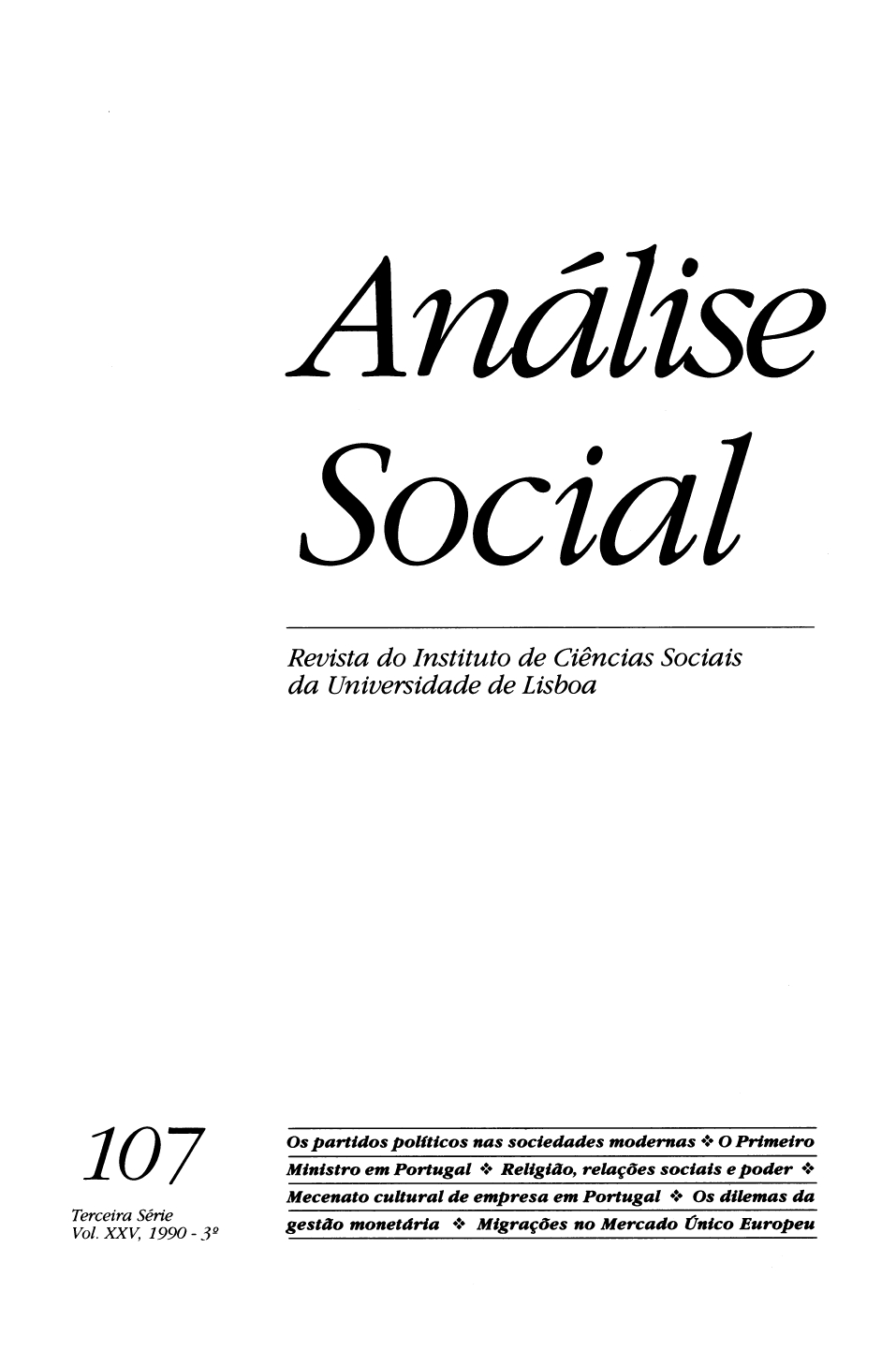O primeiro-ministro: estudo sobre o poder executivo em Portugal
DOI:
https://doi.org/10.31447/AS00032573.1990107.02Palavras-chave:
papel do primeiro-ministro, processo de decisão no executivo português, governos constitucionais, 1976-1983Resumo
O artigo pretende analisar o papel do primeiro-ministro e o processo de decisão no executivo português. Esses temas foram analisados de vários pontos de vista: elaboração dos programas de governo; recrutamento do pessoal ministerial; condições políticas para o exercício de funções governativas; tipo de apoio partidário ao executivo; relações dos ministros com os media, a universidade, as organizações sociais e profissionais; o processo de decisão nos ministérios; o funcionamento do Conselho de Ministros; e, por fim, o tipo de direcção, arbitragem e representação do primeiro-ministro. O estudo compreende os oito primeiros governos constitucionais, ou seja, todos os governos entre 1976 e 1983. Em geral, concluiu-se que as decisões do executivo assentavam em informação limitada ou deficiente, não tinham coerência política sistemática e não eram globalmente coordenadas. Concluiu-se também que os poderes do primeiro-ministro para fiscalizar os ministros e a sua acção estavam fortemente limitados e que a sua força aparente escondia uma real fraqueza. O carácter avulso e aleatório da maioria das decisões do executivo e a impotência do primeiro-ministro para corrigir esta situação constituem a tese central do estudo.




